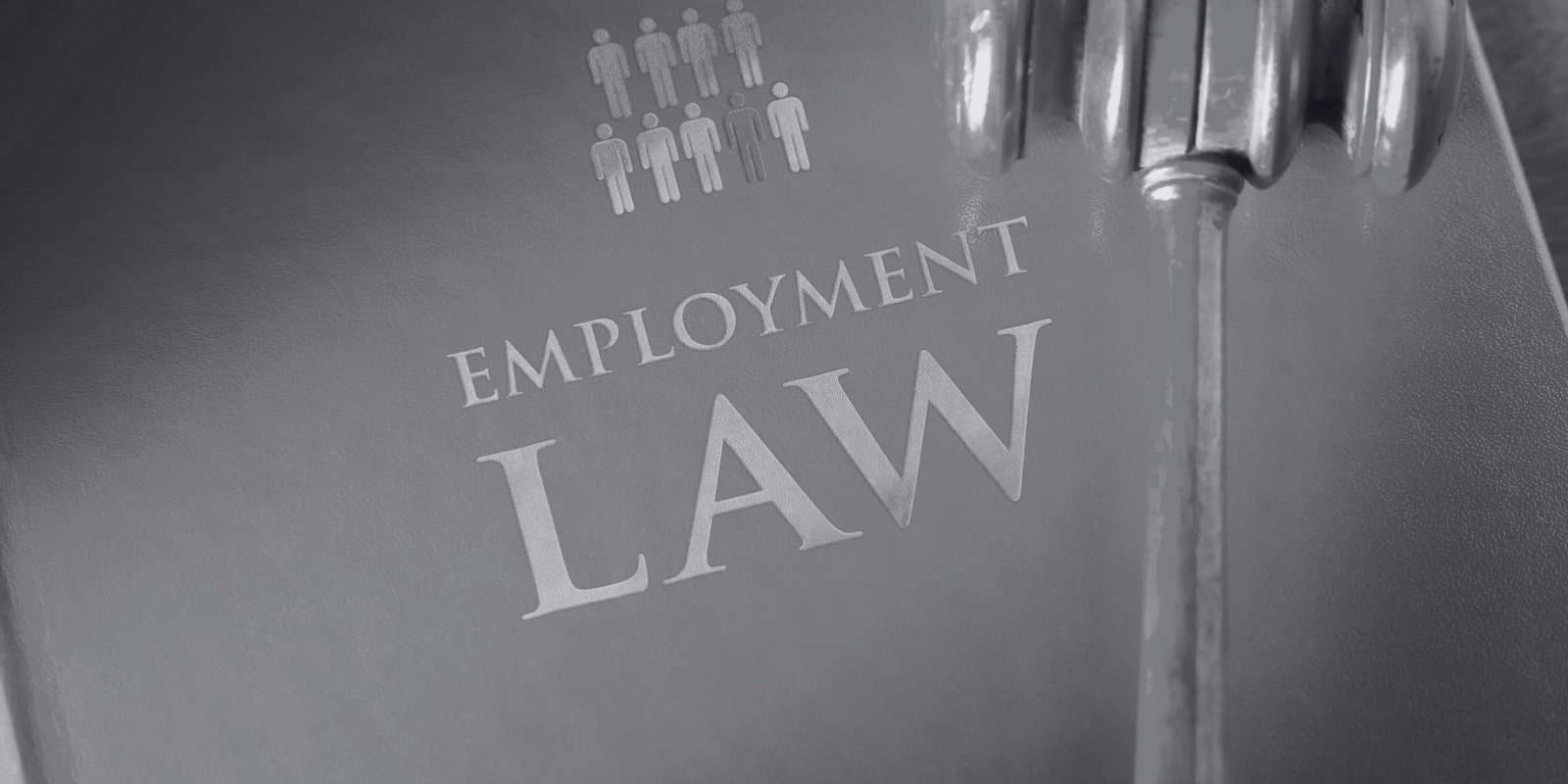LABOR LAW (ROYAL DECREE M/51)
On August 6th, 2024, the Council of Ministers in the Kingdom of Saudi Arabia made a major modification to the Labour Law, which included an amendment of 38 articles, a deletion of 7 articles and an addition of 2 articles.
The amendments are aiming to accomplish the following:
- Develop Regulations and Policies: This represents a more sophisticated articulation of labour practices that will help businesses do better.
- Support Small and Medium Enterprises (SMEs): Wherever possible, support SMEs to help generate jobs for Saudi citizens.
- Achieve Sustainable Development Goals: A downtown labour policy that aligns with the rest of the profit and social goals in the economy, trade or employment.
- Foster a Balanced, Dynamic, and Inclusive Labour Market: While providing the necessary protections for workers, provide employers with the necessary flexibility to have a productive labour market.
IMPLICATIONS FOR EMPLOYERS AND EMPLOYEES:
- For Employers: More flexibility with managing human resources, but it is harsher on compliance requirements for the protection of workers. Employers must adapt to the new regulations while remaining compliant with the law.
- For Employees: Better rights and protections, and benefits for workers, contributing to a fairer, just and equitable workplace.
HIGHLIGHTS OF THE LABOR LAW
1. Nitaqat Program (Saudization)
The Nitaqat program aims to facilitate compliance with Saudization objectives by progressively increasing local employment requirements by sector, so that businesses can adjust over time. Compliance with the Nitaqat program is vital to any company that wants to keep its labour market competitiveness. Depending on how they fall within the Nitaqat ranges (Platinum, High Green, Medium Green, Low Green, and Red), companies are provided services that include:
Platinum, High Green & Medium Green Range:
- Application for new expatriate worker labour visas.
- Change the occupation of expatriate workers.
- Renewal of work permits for expatriate workers.
- Transfer of sponsorship for an expatriate worker from another entity.
- Immediate counting towards the Nitaqat program.
Low Green Range:
- Cannot apply for a new expatriate worker labour visa.
- Cannot change occupation for expatriate workers.
- Cannot renew work permits for expatriate workers.
- Immediate counting towards the Nitaqat program.
- Cannot change occupation for expatriate workers.
- Cannot transfer sponsorship for expatriate workers to the entity.
- Cannot apply for new expatriate worker labour visas.
- Cannot issue a work permit for a new expatriate worker.
- Cannot renew a work permit for an existing expatriate worker.
2. Social Insurance Law
The Social Insurance Law protects workers and their families by covering two main branches.
- Occupational Hazards Branch: Covers employment injury and applies to all workers.
- Annuities Branch: Covers non-occupational disability, pensions for old age, and death benefits and applies compulsorily to all Saudi workers under the age of 60; self-employed persons and other certain groups can also have voluntary pension coverage.
Additionally, the Social Insurance Law offers a range of employee benefits:
- Medical Care: Provides full coverage for treatment for employee treatment for work injuries.
- Daily Allowance: 100% of daily wage for temporary incapacity.
- Disability Compensation: Monthly income or lump sum payout, which is based on the severity of the disability.
- Death Compensation: Monthly income for the family or a lump sum payout.
- Retirement Pension: The worker is eligible for retirement at age 60 with a record of 120 months of contributions.
- Early Retirement: Available for workers entitled to early retirement (after 120 months of contributions) who are registered in other occupations that could be considered hazardous.
- Disability Pension: Available for non-occupational disabilities, if the employee has made the minimum number of contributions in the last 12 consecutive months.
- Special Provisions for Foreign Workers: Non-Saudi workers injured at work can claim a designated lump sum compensation for the impact of the severity of the disability or death. The maximum claim is for SAR 330.000.
GOSI (the General Organisation for Social Insurance) serves as the statutory body charged with enforcing the provisions of the Social Insurance Law to ensure the appropriate enforcement of compulsory insurance. GOSI is responsible for collecting contributions from the insured employers and distributing benefits to those enrolled and their families. In this way, Gosi offers a level of social protection and insurance coverage for workers throughout the Kingdom. As such, it is a legal requirement for employers to register their workers with GOSI.
BREAKDOWN OF GOSI CONTRIBUTION:
- Foreign National Employees: Employers are required to pay 2% of wages for the Occupational Hazards Branch.
- Saudi National Employees: Employers contribute 2% of wages for the Occupational Hazards Branch; 1.5% for unemployment insurance, and 18% for the Annuities Branch. Employers and employees jointly contribute to occupational hazards and annuities branches.
Compliance and Penalties:
Penalties for non-compliance can incur fines in excess of SAR 10,000 for each violation. Fines are doubled for recurring violations, and non-compliance can result in suspension of services or ineligibility for potential tenders.
EMPLOYMENT CONTRACTS
Upon hiring, every single employee will have a written employment contract stating their job titles, duties, salary, and additional employment terms. The contract needs to be written in Arabic or an Arabic translation provided that details the job title, duties, salary, benefits, and working hours. The contract should be registered with Qiwa, a department of the Ministry of Human Resources and Social Development.
Key Contractual Elements
- Working Hours: The standard working hours are 48 hours per week at a maximum of 8 hours a day over a six-day work period. Employees can expect a break of one hour immediately following five hours of continuous working time.
- Salary Payments: Employees must be paid their salaries on or before the payment date as set in the employment contract, because late payment may have legal ramifications.
- Residency Permit: The employer sponsors the expatriate worker’s residency permit (Iqama) and renews and pays for the residency permit.
- Annual Leave: Annual leave is defined as 21 days per annum after completing 1 year of service with the employer. After completion of 5 years, paid vacation will increase to 30 days per year.
- Sick Leave: Employees are entitled to 120 sick leave days. Employees will receive full pay for the first 30 days of sick leave, which, as a rule, requires a medical certificate.
- Medical Care: Employees usually obtain their health insurance provided by the employer.
- Notice Period: Must be contained in the employment contract. The notice period is 30 days for termination by the employee and 60 days if the termination is by the employer.
- End-of-Service Benefits: Is calculated according to length of service and last drawn salary.
Salary Structure
Saudi Arabia does not have an obligatory minimum wage; however, wages are required to be paid monthly. The format of salaries is usually as follows:
- Basic Salary: The base pay rate.
- Allowances: Allowances typically include housing, transportation, and utility allowances.
- Overtime Rates: Normal standard rates are 1.5 times the rate for any weekday work and two times of the rate for any work done on Fridays or Public holidays.
- End-of-Service Benefits: Typically paid out at a certain amount per year of service.
Deductions
Employers may only deduct legally designated deductions, e.g., taxes or other statutory contributions. All deductibles, other than what is specified by law, must be agreed to by both parties and documented in the contract of employment.
End-of-Service Pay
Employees with a minimum of two years of continuous service are generally entitled to severance pay regardless of whether the employee resigns, is terminated, or the contract comes to an end (except for gross misconduct).
Calculation of Severance Pay
- For the First Five Years: Half a month’s salary for each year of service.
- For Each Additional Year Beyond Five Years: One month’s salary for each year of service.
CONCLUSION
The parents having entities in Saudi Arabia need to stay abreast of employment Law and the applicable notifications and changes to its Articles. Employment law compliance not only helps to prevent penalties, but can create a positive workplace culture, which can help an organisation excel in the constantly shifting labour market in the Kingdom. Our Human Resource & Payroll package can alleviate this stressor and allow you to concentrate on the operational plan, while our HR professionals can take care of your employment compliance.
If you are interested in learning more, reach out to our team of consultants to obtain your complimentary expert consultation. Our team will work with you to navigate the regulators to help minimise potential compliance issues.
Contact us via email at [email protected] or call:







